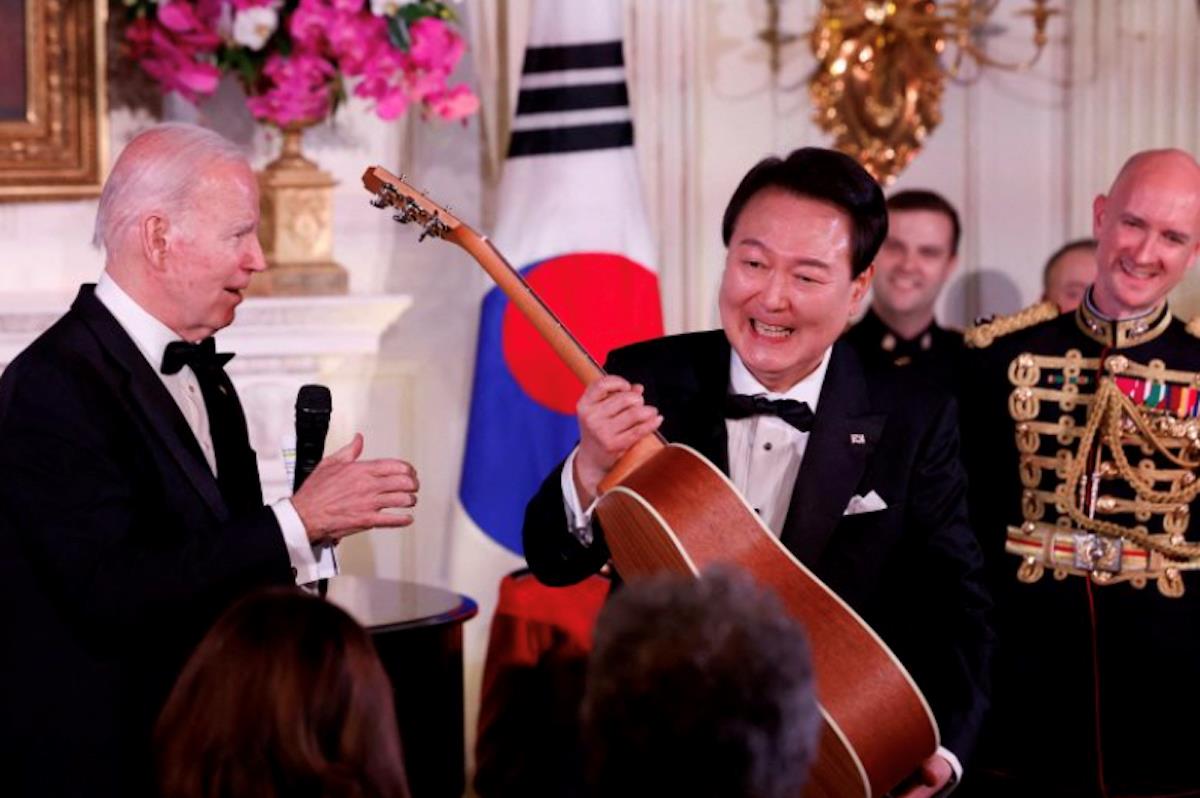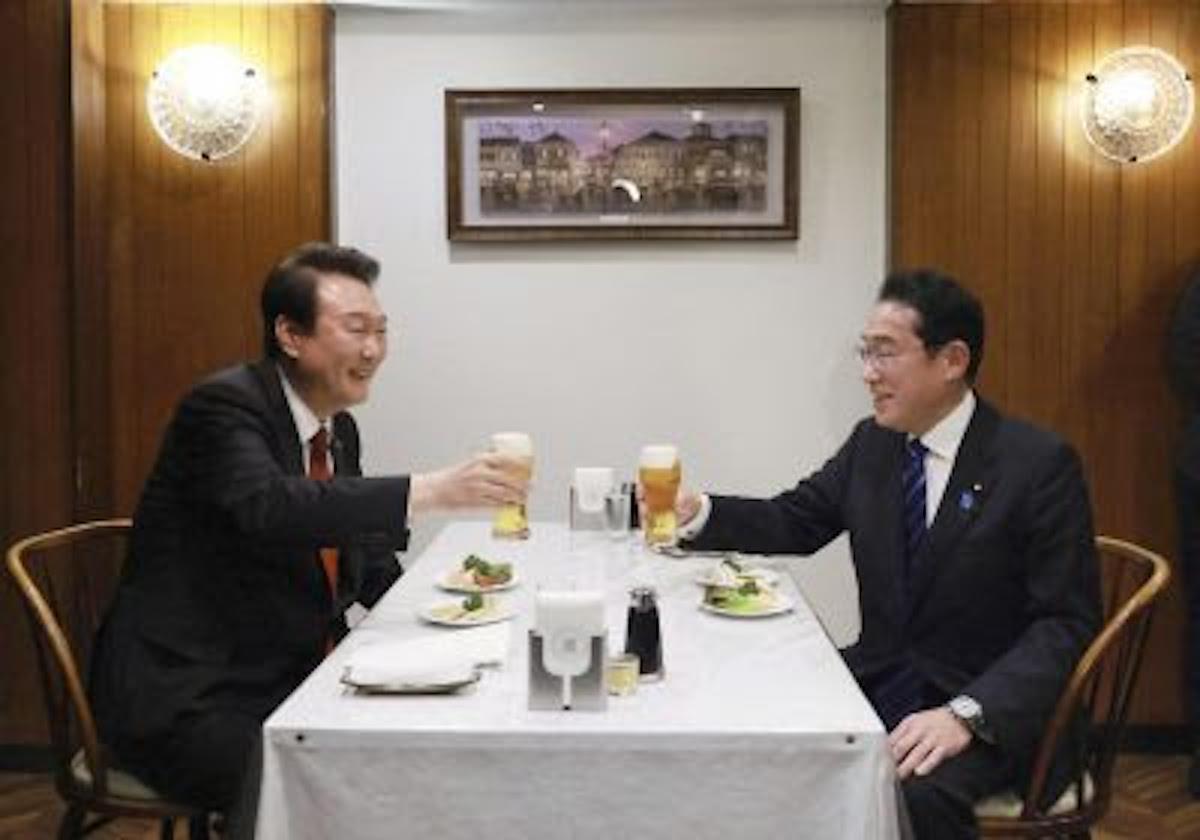(MENAFN- Asia Times) A new Cold War structure is emerging in Northeast Asia that is creating polarization among countries in the region. North Korea's unprecedented aggression, China's assertiveness and the Russian invasion of Ukraine indicate that now is the time for countries to choose a side, not hover indecisively between camps.
South Korean President Yoon Seok-Yeol has made a clear decision, opting to align more closely with the United States and its allies in the region. Yoon's choice has made the century-old enmity between Japan and Korea of secondary importance and sent a stern message to North Korea.
South Korea is now poised to establish a robust military alliance with the United States and forge closer relations with japan . More formal arrangements, such as a Quad membership, also seem possible. While not outrightly rejecting cooperation with China, South Korea's new indo-pacific strategy discusses the threats that China poses to regional stability .
Yoon's remarks on the Taiwan and Ukraine issues show that he is comfortable dealing with these issues openly, which has angered china . Given former South Korean president Moon Jae-In's experience, Yoon has made an understandable choice.
Moon was stuck between his grandiose promises to North Korean President Kim Jong Un on the one hand and the reality of limited interactions due to sanctions and South Korea's alliance with the United States on the other.

Yoon and Biden are playing from the same strategic song sheet. Image: EAF
South Korea's aspirations under former president Roh Moo-Hyun to become a“balancer” of competing interests in Northeast Asia did not satisfy anyone. For Moon, the feasibility of improving inter-Korean relations fell apart with the failure of the april 2019 summit between the United States and North Korea in Hanoi.
But choosing a“camp” does not mean shutting down all other options. South Korea should accept the reality of US-China tensions and China's status as a major trading partner and neighbor. South Korea can balance its regional alliances by reviving existing institutions of integration and creating new ones. Talking to other states on as many levels of diplomacy as possible is a good start.
In East Asia, states have the time and necessity to engage in these dialogues. The
trilateral cooperation secretariat
of China, Japan and South Korea should be strengthened and its visibility elevated. Joint UN fora like the United Nations Economic and Social Commission for Asia and the Pacific's Northeast Asia office in Incheon should also be used to improve communication.
The Northeast Asian Subregional Program for
environmental cooperation
brings together China, Japan, South and North Korea, Mongolia and Russia. Maintaining at least a minimum of contact and information exchange between these states is valuable for potential future cooperation.
South Korea should continue working to create greater consensus and better understanding that fosters a joint East Asian view on important topics. There were distinguishable camps in Europe during the Cold War - the North Atlantic Treaty Organization and the European Community in the West versus the Warsaw Pact and the Council for Mutual Economic Assistance in the East.
But pan-European dialogue still became possible in the 1970s through the Conference on Security and Cooperation in Europe, which was held in Helsinki as a 'neutral' location.
Northeast Asia has similar options such as Mongolia, which maintains friendly relations with all countries in the region. The
ulaanbaatar dialogue
on Northeast Asian Security, which has been held seven times, brings together hundreds of officials and stakeholders from Northeast Asian countries (including North Korea) and other regions.
While East European rulers did not expect the end of the Cold War dialogue in Europe through the peaceful revolutions of 1989, they were still interested in maintaining discussions, since it offered them outcomes like international recognition and status.
A similar incentive structure is not easy to create in East Asia, but South Korea should be willing to offer incentives to its dialogue partners, without making unrealistic promises as the previous government did.

South Korean President Yoon and Japanese counterpart Kishida share a toast but bilateral ties still have a way to go to normalization. Image: Pool
Europe's most important lesson in the Cold War was that dialogue should not be a reward for good behaviour but rather used to resolve behavioral issues between states.
South Korea should resist shutting down dialogue with Japan and suspending exchange programs when Japan issues controversial statements , for example on territorial issues like Dokdo. This inward-looking behavior has done nothing to overcome hostility.
ASEAN's strategy to avoid open conflict on contentious issues and instead focus on dialogue as a way to
increase mutual understanding
offers important lessons for Northeast Asia. Encouraging dialogue with China and
north korea
is not an easy task, but South Korea can succeed if it takes a confident, conciliatory regional approach.
Bernhard Seliger is Resident Representative of Hanns Seidel Foundation Korea, Professor of East Asian Economies and Member of the East Asia Center at Zwickau University of Applied Sciences, Germany.
This article was originally published by East Asia Forum and is republished under a Creative Commons license.
Like this:Like Loading...